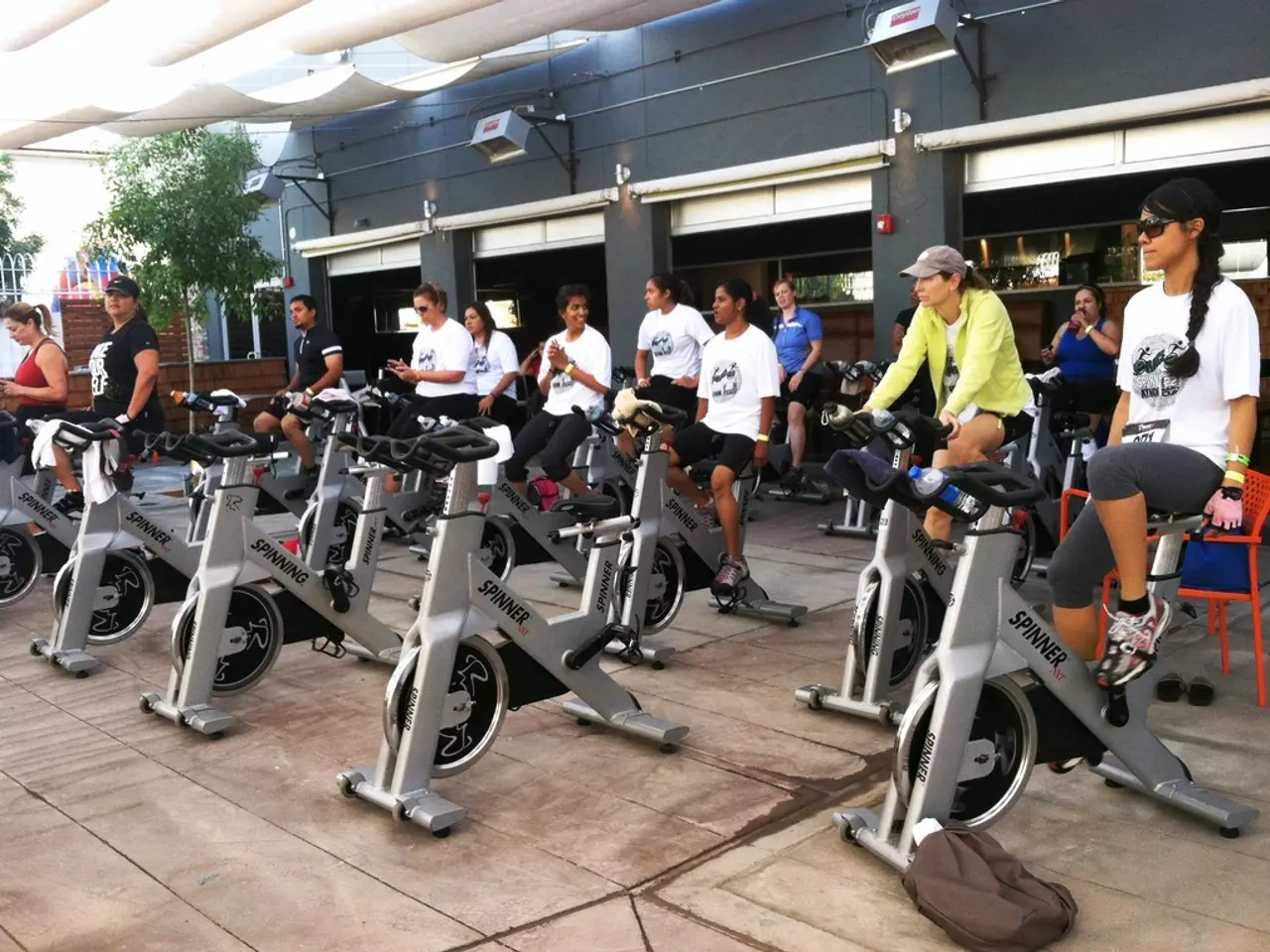Boost Your Workout Performance: The Impact of Increased Water Consumption on Enhancing Exercise Outcomes
Staying Hydrated for Optimal Workouts: A Comprehensive Guide
Staying properly hydrated before, during, and after exercise is crucial for maintaining peak performance and facilitating quick recovery. Here's a guide to help you optimize your hydration for the best workout results.
Pre-Workout Hydration
Starting your workout well-hydrated is essential for maintaining cardiovascular function and muscular endurance. Dehydration before exercise can lead to reduced performance.
During Workout Hydration
Drink regularly to compensate for sweat losses. Aim for about 0.4 to 0.8 liters per hour, depending on tolerance and conditions. For workouts longer than an hour, consider including electrolytes like sodium to maintain muscle function and prevent cramps.
Post-Workout Hydration
Rehydrate thoroughly by drinking about 1.5 liters of water for each kilogram of body weight lost during exercise. Use sports drinks with sodium and potassium to replenish electrolytes critical for neuromuscular function and recovery. This supports reducing muscle damage markers and improves recovery rate.
Electrolyte Intake
Sodium, potassium, magnesium, and chloride are essential to maintain nerve impulses, muscle contractions, proper blood pH, and to buffer lactic acid accumulation. The more intense and longer the workout, the greater the need for electrolyte replacement.
Nutrition
Alongside fluids, consume 20 to 40 grams of complete protein multiple times daily and 1.0 to 1.2 grams of carbohydrates per kilogram of body weight within four hours after exercise to aid muscle repair and replenish glycogen stores.
Hydration Strategies Based on Workout Type
- Short, low-intensity workouts: Maintain baseline hydration by drinking water as needed.
- Moderate intensity (under 1 hour): Drink water regularly, small sips every 15-20 minutes.
- High intensity or long duration (>1 hour): Consider including electrolyte-containing fluids during and after exercise.
Additional Tips
- Adding a pinch of salt to your water can help replace lost electrolytes during exercise.
- Drinking cold water can help cool your body and aid in hydration.
- Consuming water-rich foods like cucumbers, watermelon, or oranges can help supplement your hydration.
- Avoiding alcohol, caffeine, and sugary drinks can help maintain proper hydration levels.
- Using a fitness tracker or app can help you monitor your hydration levels and set hydration goals.
- Set hydration alarms to remind yourself to drink water at regular intervals throughout the day.
By following these practices, hydration helps maintain blood volume, regulate core temperature, and prevent muscle cramps, ultimately supporting better performance and faster recovery after diverse workout types.
Remember, dehydration can result in muscle cramps, fatigue, and decreased strength, limiting workout potential. So, drink up and stay hydrated for optimal workout success!
References
- American Council on Exercise
- Mayo Clinic
- National Academies of Sciences, Engineering, and Medicine
- International Society of Sports Nutrition
- Journal of the International Society of Sports Nutrition





